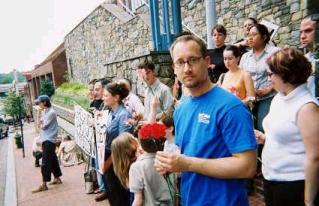Six subcommittees investigating the killings of an estimated 2,500 drug users or traffickers during a 2003 effort to wipe out drug use in Thailand under the government of Prime Minister Thaksin Shinawatra will issue a first report on December 1, the Bangkok Post reported Tuesday. The subcommittees are part of the Independent Commission for Study and Analysis of the Formation and Implementation of Drug Suppression Policy (ICID) set up by the interim government of Surayud Chulanont to investigate the killings.

Chanchao said the reports would give the ICID a clear picture of human rights violations in the course of Thaksin's anti-drug campaign. They will also describe how innocent people were framed for drug offenses they did not commit, he said.
Another subcommittee has concluded that the families of four victims killed in Thaksin's drug war should receive compensation. One was Nong Fluke, a nine-year-old boy shot dead in his father's car during a police sting operation. His mother was seized by police in that incident and has not been seen since. That panel will also present an analysis of what impact Thaksin's war on drugs had on drug use and drug sales in the country.
The other four panels will make their findings known in a second report to the ICID later this month. The ICID will submit the findings of the subcommittees to the Surayud government by year's end for evaluation.
This work by StoptheDrugWar.org is licensed under Creative Commons Attribution-ShareAlike 4.0 International
Comments
Bangkok Post article
Article locations at Bangkok Post can change.
==start==
Bangkok Post . November 20, 2007.
http://www.bangkokpost.com/election2007/201107/election_201107_03.html
Thaksin govt accused in drugs report
Rights violations to be made clearer
SUPAWADEE INTHAWONG
Six sub-committees investigating the extra-judicial killings that took place during the war on drugs waged by the Thaksin administration plan to issue a report detailing how the previous government had violated human rights.
Chanchao Chaiyanukij, secretary to the Independent Commission for Study and Analysis of the Formation and Implementation of Drug Suppression Policy (ICID), said the sub-panels would present their combined report on the progress in their investigations to the ICID on Dec 1.
It will be the first report to the ICID, which was set up by the interim Surayud Chulanont government to investigate the deaths of some 2,500 people during the three-month drug suppression drive from Feb 1 to April 30 in 2003.
The campaign drew heavy criticism from human rights agencies.
The commission, chaired by former attorney-general Khanit na Nakhon, has set up six sub-panels to carry out the probes.
Mr Chanchao said the sub-panel headed by Office of the Narcotics Control Board's secretary-general Kitti Limchaikij had by far made the most progress in their work.
He said the sub-panel had gathered evidence documenting orders and drug suppression policies issued by the Thaksin cabinet and CDs showing sessions where Mr Thaksin chaired, gave instructions and sent signals that led to the extra-judicial killings.
The sub-panel had also obtained circular letters on drug suppression campaigns issued to government agencies and provincial governors, he said.
In addition, the sub-panel had information on the making of a blacklist of those involved in drug trafficking and how the orders were given to get rid of some of the men on the blacklist, Mr Chanchao said.
He said the detailed information would give the ICID a clear picture of the alleged human rights violations that occurred under the anti-drug drive of the Thaksin regime.
The report also describes how innocent people were framed for drug offences they did not commit, Mr Chanchao said.
The evidence was enough to hold those who enforced the drug suppression policy to account, he said.
In addition, ministers involved in giving orders to ''shorten'' the blacklist through killings could face criminal charges, he said.
Another sub-panel led by deputy chief of the Department of Special Investigation (DSI) Tharit Pengdit has concluded that compensation should be paid to the families of four of the victims killed during the anti-drug war.
The four were Chakkraphan Srisa-ard, or Nong Fluke, a nine-year-old boy who was shot dead in his father's car during a sting operation by police. His mother disappeared without trace.
The other three were Nikom and Kanraya Oon-kaew, a couple living in Nakhon Ratchasima, and Aoy Hemman, a native of Phetchabun.
The sub-panel has also presented an analysis in the report on whether the war on drugs had succeeded in controlling drug abuse problems in the country, Mr Chanchao said.
The other four sub-panels will say what they have to in the second report to the ICID.
They will use the findings of the first two sub-panels as a basis for making up their own reports, he said.
The ICID plans to submit the findings of the six sub-panels to the Surayud government by the end of the year for evaluation.
He said it would be up to the next government to decide whether the ICID should be kept alive, even though the commission has until next August to complete its job.
===end===
Photos of dead:
http://gallery.marihemp.com/akha
Add new comment